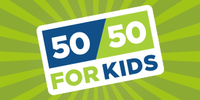With the recent announcement from the Government of Saskatchewan that it has signed a multi-year funding agreement with the Saskatchewan School Boards Association (SSBA), with the support of Saskatchewan's locally elected boards of education, the Saskatchewan Teachers’ Federation has responded.
The Saskatchewan Government stated in a release, "It provides a minimum of $356.6 million per year for four years for classroom supports as well as increased investment into youth mental health resources as part of a budget that marks the largest increase of $180 million to school operating funding ever."
"This agreement provides a written guarantee, signed by the government, for long-term funding for classroom supports - funding that will address important issues like classroom size and complexity," Education Minister Jeremy Cockrill said. "Now that our government has made this unprecedented commitment in a signed agreement, it's time for the Saskatchewan Teachers Federation to end their job action and return to the bargaining table so that students and teachers can return to the classroom."
"This agreement represents the willingness of both the Ministry of Education and school boards to work collaboratively toward solutions with some predictable and sustainable funding to back it up," SSBA President Jaimie Smith-Windsor said. "These issues are best addressed at the local level, working with teachers, staff, students, parents, and families."
The Saskatchewan Teachers’ Federation responded with a release.
“We’re encouraged that government appears to be finally listening to teachers, parents, students, and the community by taking steps to provide predictable, sustainable funding for public education,” said STF President Samantha Becotte. “If government is willing to negotiate on the items addressed within the memorandum of understanding and bring this back to the table, we believe an agreement can be reached quickly.”
The STF says they are prepared to return to the table and cease sanctions immediately, so long as the government is willing to:
- Provide assurances that boards of education cannot use these new funds for anything other than student supports. If funds are unrestricted, as they currently are in the MOU, they could be used for other items, such as servicing debt, rather than being earmarked to assist students.
- Tie funding to increases in enrolment and inflation, rather than remaining flat.
- Include a reporting mechanism on the use of these funds within school divisions to ensure transparency.
- Ensure funding is not subject to appropriation, as the MOU currently states, so that it cannot be reduced.
- Adjust the term of the MOU to align with the provincial collective agreement.
“Saskatchewan is growing and has surpassed government expectations for immigration. We have welcomed many new students to our classrooms in recent years and anticipate this will continue for years to come. If funding doesn’t keep pace with enrolment, the same problem we see in classrooms today will continue in the future,” says Samantha Becotte. “We are extremely proud of the 13,500 Saskatchewan teachers, and countless supporters across the country, who have pressured the Government of Saskatchewan to finally acknowledge their responsibility for publicly funded education, but we need assurances, in writing, that this funding will meet the desperate need.”














